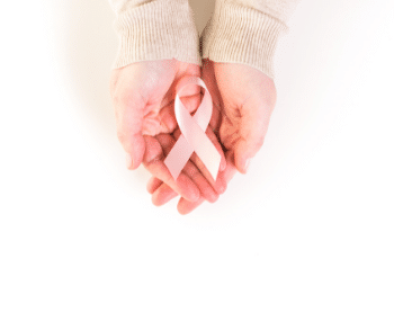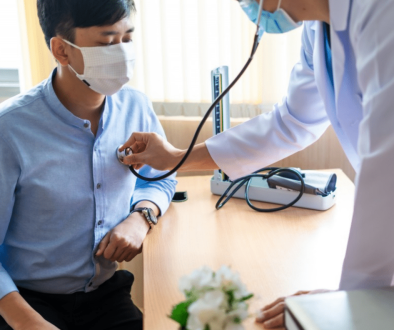Female Health Package – Clinic One Kathmandu

Last updated on December 23rd, 2025 at 01:27 pm
Clinic One serves around 10,000 people annually and is also renowned as one of the best clinics in Kathmandu providing Full Body Checkups for women.
A female Full Body Checkup is slightly different from a Regular Full Body Checkup. Our female health package primarily focuses on women’s health with breast and cervical cancer screening with Free Gynecology Consultation.
Preparation for Full Body Checkup
There are certain things to be considered before your full body checkup which can help for accurate results about your overall health condition.
- Do not eat/drink anything except water before your test.
An empty stomach is needed for some of your blood tests, including an ultrasound. (Fasting for at least 8-10 hours is needed.) - Drink a lot of water before your Full Body Checkup Appointment as your bladder must be full during the Ultrasound process.
- Wear loose-fitting clothes and avoid wearing jewelry while coming for your test.
- Inform the medical professionals prior if you are pregnant or planning for pregnancy.
- For females, you should avoid full body checkups within a week before or after your menstrual period.
- We do not recommend performing a Full Body Checkup the next day after a night party.
- For accurate results, do not change anything in your diet or lifestyle while preparing for a Full Body Checkup.
Which tests are included in the Female Full Body Checkup Package?
Clinic One Kathmandu’s Female Health Package includes 21 different tests and investigations. They are done within 90 minutes at only Rs 8500/-.
This package is suitable for anyone who is planning to have a yearly whole-body checkup at a very reasonable price. The tests done are –
1. CBC (Complete Blood Count)
Complete Blood Count is a blood test used to evaluate the overall health of your body by giving complete information about the number of cells in a patient’s blood and their types, the concentration of hemoglobin, etc.
CBC test includes TLC (Total Leukocyte Counts) a.k.a white blood cells(WBC) and their numbers, DLC(Differential Leucocyte Counts), Total RBC(Red Blood Cells), Platelet count, etc. This test will show if the body needs further examination.
2. ESR (Erythrocyte Sedimentation Rate)
Erythrocyte Sedimentation Rate is a test that helps in finding out the rate of red blood cell settlement/movement that can diagnose any inflammation in the body.
This test helps to evaluate if the body has arthritis, vasculitis, or inflammatory bowel disease and also helps in determining the cause of unexplained fever, headaches, weight loss, loss of appetite, and so on.
3. FBS (Fasting Blood Sugar)
This is a type of blood test that indicates how a person’s body is managing blood sugar levels. A fasting blood sugar level of:
· Below 100 mg/dL (5.6 mmol/L) is normal.
· From 100 to 125 mg/dL (5.6 to 6.9 mmol/L) is considered to be a level of prediabetes.
· Equal to OR Above 126 mg/dL (7 mmol/L) on two separate tests shows that you have diabetes.
4. RFT (Renal Function Test)
This is a type of blood test that is performed to check the health of the kidneys. This test shows the amount of protein and particles in the bloodstream, which may indicate if the person has kidney problems.
5. LFT (Liver Function Test)
This is a type of blood test procedure that is performed to check the health of the liver by measuring the number of liver bilirubin, enzymes, and proteins in the bloodstream.
This test includes Total Protein, Albumin, Globulin, A/G Ratio, Total Bilirubin, Conjugated Bilirubin, Unconjugated Bilirubin, SGOT(AST), SGPT(ALT), Alkaline Phosphatase, GGT, SGOT/SGPT Ratio. This test will show if further examination is necessary.
6. Lipid Profile
This is a series of blood tests that measures the amount of cholesterol and triglyceride in the blood.
This test helps in the detection, monitor, management, etc. of a host of health complications some of which can be fatal. This test includes Total Cholesterol, HDL Chol., LDL Chol., Non-HDL Chol., Triglycerides, VLDL Chol., LDL/HDL Ratio,
TC/HDL Ratio, etc. that can determine the risk for any cardiovascular-related diseases.
7. Urine R/M Test
A urine Routine Microscopy test is used to determine if there is any sign and symptoms of UTIs, kidney problems, diabetes, and other disorders. The result of this test will determine if there is a need for further examination.
8. Stool R/M Test
Stool Routine Microscopy test is used to determine if there is any problem with a person’s digestive system. This test will indicate if there is an infection in the digestive system, the number of bacteria in the stomach, and in rare cases, symptoms of cancer.
9. Uric Acid Test
It is a type of test that will show the amount of uric acid in the bloodstream or urine. This test is useful to find out if there are any kidney problems(such as kidney stones, kidney failure, gout, etc.).
Detection of a high level of uric acid in blood could indicate the condition of gout or the cause of kidney stones developed within the body unknowingly.
10. TFT (Thyroid Function Test)
This is a series of blood tests that test the working mechanism of the thyroid glands.
It is a small gland located in the lower part of the front of the neck that helps in regulating metabolism, energy generation, and mood. The test includes the following:
a. TSH
This tests the amount of thyroid-stimulating hormone in the blood. Over-stimulation can cause developmental disabilities.
b. T4
This tests the amount of thyroxine (which helps in controlling metabolism and growth) in the bloodstream.
c. T3
This test shows if the thyroid is producing too much hormone. Too much hormone can be a symptom of hyperthyroidism. 11. ECG (Electrocardiogram)
This is a painless, quick, and harmless test that shows the electrical activity of the heart that determines common heart-related problems including irregular heartbeat.
This test is done by attaching electrodes in the chest, which transmit the electric signal of your heart to the ECG machine that translates it and provides a graphical presentation of the heartbeat on the monitor.
12. USG (A/P)
Ultrasound is an imaging test that uses high-frequency sound waves to produce pictures of or to scan the activities within the body. This test can show the internal organ’s activities which helps determine many A/P problems.
13. Breast Ultrasound
Breast Ultrasound is a procedure that produces a picture of the internal structure of the breast with high-frequency sound waves, that help in determining a diagnosis for breast lumps or other abnormalities. It can be done for the early detection of breast cancer.
14. Pap Smear Test
Pap Smear test is used in determining cervical cancer or precancerous symptoms in women.
It is a procedure that tests for precancerous/cancer symptoms by analyzing cell extracts of the pelvic area of the women’s body. It is effective and widely used for the early detection of precancerous/cancer symptoms, infections and other abnormalities.
15. Serum Calcium
The Serum Calcium test measures the level of calcium in your blood. Calcium is essential for bone health, nerve function, and muscle contraction.
Abnormal calcium levels can indicate issues such as bone disorders, kidney problems, or parathyroid gland dysfunction. This test helps in diagnosing and monitoring conditions related to calcium imbalances in the body.
16. Iron
The iron test measures the amount of iron in your blood, which is essential for producing hemoglobin, the protein in red blood cells that carries oxygen throughout the body.
An iron test helps diagnose conditions like anemia or iron overload disorders. Low levels of iron can lead to fatigue and weakness, while high levels may indicate conditions such as hemochromatosis.
17. CA125
The CA 125 test measures the level of the cancer antigen 125 (CA 125) protein in the blood. This test is primarily used to monitor ovarian cancer, as elevated levels of CA 125 can indicate the presence of ovarian cancer or other related conditions.
18. BMI Test
BMI is the value derived from the mass and height of the person. The formula used to calculate BMI is:
BMI= Mass/(height)^2
BMI is a test done to determine if a person is underweight, normal weight, overweight or obese.
If the BMI value is less than 18.5 it is considered underweight, 18.5 to 25 is considered normal weight, 25 to 29.9 is considered overweight and if the BMI is more than or equal to 30 it is considered obese.
19. Peak Expiratory Flow Rate (PEFR)
The Peak Expiratory Flow Rate (PEFR) test measures how quickly a person can exhale air, which helps assess the function of the lungs and detect any respiratory issues.
20. Gynecologist Consultation
When you choose Clinic One Kathmandu for a full body checkup, you will receive a free consultation with our Senior Gynecologist.
21. General Physician Consultation
You will also receive a Free General Physician Consultation on our full body checkup package. All your test reports will be collected and reviewed by our general physician.
About Cervical Cancer
Cervical cancer is the most common malignancy among Nepalese people. There are 2,332 women diagnosed with cervical cancer each year, and 1,367 women die from the disease. Cervical cancer is the first most common cancer among women in Nepal, and the first common cancer among women aged between 15 and 44.
Fortunately, the incidence of cervical cancer has decreased by 50% in the past 30 years largely due to the increasing use of cervical cancer screening and the HPV Vaccine. The mainstay of cervical cancer screening has been Pap Smear Test that is included in our Female Full Body Checkup Package.
Why is Full Body Checkup important for Women?
Women’s Health Checkup Packages are essential for them to maintain their health and also go for regular checkups to ensure the early detection of any problem.
These checkups can help one find potential health issues before they become a serious problems. It gives you the best chance of getting the right treatment quickly, avoiding any other complications.
By getting regular checkups once in a while you are taking important steps towards living a longer and healthier life.
Take charge of your health and schedule an appointment for a Women’s Full Body Checkup with Clinic One Kathmandu Today.
Why Choose Clinic One for Your Full-Body Checkup in Kathmandu?
At Clinic One, we prioritize your health and well-being. Our full-body checkup packages are designed to give you a detailed overview of your health.
With state-of-the-art facilities, experienced medical professionals, and personalized care, we ensure that your health is in good hands.
Book Your Full-Body Checkup Today!
Don’t wait for symptoms to appear. Take charge of your health by scheduling a full-body checkup at Clinic One today.
Early detection can make all the difference in your long-term health. Contact us to learn more about our packages and how we can help you maintain a healthy life.
For appointments and inquiries at Clinic One Kathmandu, please call 01-5920918 | 9767224104 or email us at info@clinicone.com.np


